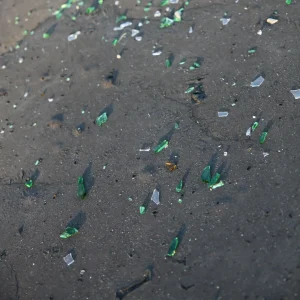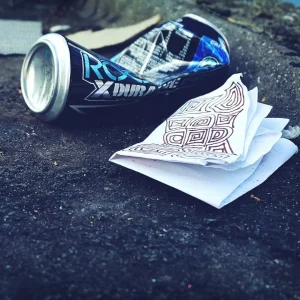Lets work together



Suite 3A, Chapel Allerton House, 114 Harrogate Road, Leeds, LS7 4NY
ukinfo@integrated-skills.com
+44 (0) 3300 888 670

Street cleansing is an essential service that we’d certainly miss if councils dropped the ball. But it’s not the first service that springs to mind when we think of waste removal teams – recycling and general waste management is the more obvious thought. It’s easy to overlook, and that’s why we’re shedding some light on it today.
The street cleansing teams responsible for this work play a vital role in maintaining public health, safety, and environmental standards. They also assist in minimising the costs of street maintenance. Many councils are turning to electric vehicles to fulfil their duties in a more environmentally friendly manner – and Integrated Skills are poised to help.
Why Street Cleansing Matters
Street cleansing is more than a purely cosmetic effort to keep towns and cities looking appealing. It’s a cornerstone of public health and environmental care.
Unclean streets can lead to significant issues, including:
Studies have also shown that residents feel safer in cleaner areas, and that clean streets perpetuate a desire to keep them that way. Well-kept streets lead to safer areas and residents that are more aware of keeping the area clean and well kept.

Challenges Faced by Street Cleansing Teams
According to the Government’s Code of Practice on Litter and Refuse, littering remains a persistent issue. Fast food packaging, cigarette butts, and discarded plastics are among the most common items found littering streets. The increase in single-use plastics and convenience culture has exacerbated the problem.
Budget cuts faced by local councils are impacting their ability to maintain street cleansing services. Limited funding often results in fewer staff, outdated equipment, and reduced frequency of cleaning. Public attitudes towards littering also create obstacles. Despite awareness campaigns and the threat of on-the-spot fines or even court action, many people continue to discard waste irresponsibly.
Street cleansing vehicles themselves can also contribute to air pollution and overall carbon emissions. However, innovations in eco-friendly technology are offering solutions. Cleaner and more energy-efficient road sweepers are becoming more readily available, as noted in a recent article by Government Business.
The Legal Framework
UK laws and guidelines to tackle litter issues and promote street cleanliness include:
Innovations in Street Cleansing
Despite the challenges, advancements in technology and practices are transforming street cleansing. Modern road sweepers now feature water-efficient systems, dust suppression mechanisms, and lower emissions. These machines not only clean more effectively but also align with environmental goals.
Additionally, data-driven approaches are gaining traction. Using GPS tracking and real-time reporting, councils can deploy resources more efficiently. Areas with high footfall or frequent littering can be prioritised, ensuring a targeted and cost-effective response.
While technology and regulation are essential, public participation is equally important. Campaigns like Keep Britain Tidy’s “Great British Spring Clean” encourage individuals and communities to take responsibility for their local environment. By fostering a culture of care and accountability, such initiatives can reduce the burden on street cleansing teams.
Education also plays a vital role. Teaching young people about the impact of littering can instil lifelong habits. Schools, local councils, and charities can collaborate to deliver engaging and informative programmes. We’ve heard of many councils inviting young school children to name new, eco-friendly sweepers, resulting in some fantastic suggestions such as Sir Sweepalot, Shaun the Sweep, and Sweepy McSweeperson.
While the fun in these strategies is apparent, they also lead to higher engagement from the community and a sense of collaboration in the next generation, who are increasingly eco-aware.

How Integrated Skills Can Help
Efficient routing is the key to keeping costs low, and our digital mapping data can be used to ensure that efficiency. From route planning to vehicle tracking, site location analysis to territory planning- this list goes on.
We’ve worked with many councils over the years, integrating the Ordnance Survey data available with the capabilities of our RouteSmart software. Our partnerships have resulted in massive financial savings, reduced carbon emissions and increased job satisfaction, as well as improved public opinion.
Our in-cab and back-office solution, SmartSuite, can provide Councils with the means to ensure that planned savings are realised. Our solution can mix both planned street sweeping work with ad-hoc tasks – such as fly-tipping removal and both with a full audit trail to ensure work is all completed and recorded.
Integrated Skills is also working with telematics providers to ensure that when streets are being serviced, there is an audit trail to ensure that there is evidence of when brushes are up and down.
For those switching to Electric Vehicle fleets, we can model the network coverage and routes for any future purchases or optimise the routes for your new vehicles as they enter the streets. We also provide in-cab solutions for all drivers to follow for maximum efficiency, whether they are established, seasonal or brand new.
Conclusion
Street cleansing is an essential yet often overlooked public service. Its impact on public health, the environment, and local economies cannot be overstated. However, challenges such as funding cuts, public behaviour, and climate considerations highlight the need for collective action.
By recognising the value of street cleansing, supporting innovative practices, and encouraging public engagement, we can ensure our streets remain clean and safe for everyone.
Would you like to know more about Street Cleansing: The Often Forgotten, Essential Service? Fill in your details below and let us know how we can help.
Website Designed & Built by we are CODA